 |
| Krishna kept all arrows of Bheeshma pressed under His toe, thus protecting Arjuna from any harm |
Krishna said, “Arjuna, no one has understood the principle of Divinity and the Divine play or sport. God has no selfishness. His only vow is to protect His devotees. His only duty is to nurture His devotees. Today, all the arrows shot by Bheeshma were pressed under the toe of my feet. That is why none of the weapons could harm you. If at all I had got down first, all these weapons would have exploded and turned the chariot into ashes. Under these circumstances, you too would have burned to ashes. Without recognizing this truth, you were insistent that I should get down first. Once Arjuna heard these words, he vanquished his ego. Finding faults in God is also a quality of jealousy.
Krishna demonstrates through the Tulaabhaaram episode that God submits Himself only to Pure Love and Devotion-9.47-1973 May 30
 |
| God submits only to pure love and devotion |
Note: Tulabharam is a ritual, symbolic of offering oneself to the Lord. Since one has to live in this world performing one’s mundane worldly affairs, till life lasts, one offers a representative item equal to his / her body weight; usually items like bananas, coconuts, jaggery, fruits, grains or if one can afford, even gold. The ritual consists of literally placing the individual who makes the offering in one pan of the scale and the item to be offered in the other pan, until the two pans of the scale balance equally).
Krishna teaches Durvasa the tactic of voice modulation to protect Pandavas-7.48-2000 May 18 – 2004 September 18
 |
| God is always loving and has no quality of anger Anger if at all, is shown only to correct the devotee. |
Sages, saints and aspirants; just by changing the tone of their voice have been bringing about protection or punishment. Sage Durvasa also brought about protection and punishment by modulating his voice. Many ignorant people criticize Durvasa, stating that how can such a great saint have anger in him. But only those who understand the inner significance of anger will enquire into this truth. God has no anger of any kind. The one who gets angry can never be God. But, He changes His voice to protect people. No sage or saint can have any anger in them.
Krishna multiplies Himself into many cowherds and calves to vanquish ego of Brahma-10.22-1994 August 28
 |
| Krishna multiplies Himself to become each of the missing cowherds and calves |
It is impossible for everyone to understand this Divine Principle. Considering the human form (assumed by God) as an ordinary human being, all are drowned in Maya or illusion. They think, “That body is also like my body only. That body also eats like me, that body also moves around like me. Therefore, there is no difference between the two bodies. I am not different from Him”. Thus they see oneness here. But they do not see oneness of the Atman (Self). They are seeing only the physical form. Thus it is very difficult to recognize the Divinity when it assumes a human form.
Krishna satiates the hunger of thousands to save Pandavas from humiliation by Sage Durvasa-5.10-1996 July 09
 |
| One leaf from the vessel satiated Krishna’s stomach and the stomachs of thousands of disciples of Sage Durvasa |
When God is satisfied, the whole world becomes satisfied. When God denies you, nobody will accept you. When God says “Yes”, everybody will say “Yes”. Krishna was satisfied. With this, the stomachs of all the disciples of Durvasa were also filled. Having gone for a bath, they went away from there itself and never came to visit the Pandavas. Thus, Draupadi had this quality of great devotion. Having faced all trials and tribulations successfully, God Himself was impressed with her name and fame.
Krishna demonstrates wavering nature of human mind through Abhimanyu’s death and Parikshit’s life-5.54-2000 May 23
 |
| Draupadi had full faith that Krishna could grant life to Parikshit |
You say that and you say this also. You say Vamshanaashi and now you say Vamshodharakka. All this does not affect Me!
Krishna demonstrates the true love of Gopikas by feigning headache-11.32-1992 August 21
 |
| Gopikas alone are My true devotees!! |
Today, in the name of love, you are playing the game of musical chair. You are not allowing the chair to belong to one person. At one time, one person is given the seat, at another time, some other person is given the seat. How can you say the chair is yours then? The Gopikas alone demonstrated that type of authority as an ideal. They lived with all Divine feelings. They experienced every sensory organ with the feeling of making it an offering to God. Their talk was all about God, their thoughts were all about God, their hearing was all about God, their hands were always engaged in the work of God; thus they used all their sense organs with the feeling of offering the experience to God. One could not see anything that they considered as their own. Who are they after all? It is Krishna who is theirs!
Today in the world, everybody claims that they are Swami’s devotees and that they are close to Swami. They feel so, but truly none of them are. In every devotee, there is some amount of selfishness. So long as there is selfishness and pride, God’s vision will never fall on them. How does this happen? The sun is always shining. When dark and dense clouds obstruct the sun, none can see the sun. But is there no light? It is there. But since the clouds obstruct the sun, that light is not able to fall on you. In the same way, God is always the form of Love. But since ego, selfishness and ostentation come as an obstruction in the form of dark and dense clouds; He is not able to spread the principle of Love on you.
Krishna tests the faith of Arjuna before bestowing the Gita on him-4.52-1996 July 31
 |
| Total faith in Krishna and His words, made Arjuna eligible to receive the Bhagavad Gita |
Maam Anusmara Yudhya Cha
Mayy Arpita-Mano-Buddhir
Maam Evaisyasy Asamsayah
Therefore, first and foremost, we must have total faith in the Vedanta (wisdom of the Vedas). Only when there is strong faith, one can conduct accordingly. Whoever it may be, if they follow Swamis command with total faith and with incessant thoughts on Him, they will get Sakshaatkaara(realization of Swami) within one second; just one second, one second, one second!!
Krishna prostrates to the Pandavas to prevent Roma Rishi from cursing them-9.32-2000 May 19
 |
| God is Bhaktaparadeena – He submits Himself to His devotees |
Why do we chant Shanti three times? Adibhautika, Adidaivikaand Adhyatmika – we need to acquire peace at all three levels – body (physical level), mind (mental level) and Atma/soul (spiritual level). Lord Krishna told Roma Rishi, “May you attain peace.” Later Roma Rishi enquired, “Krishna, what are your strange, mysterious ways? There are none greater than You. Is it not? Then, what is the inner meaning in You prostrating to these Pandavas?” Krishna replied, “Roma Rishi, I am Bhakta Manasa Sancharini, dweller of the minds of the devotees. I am Bhaktaparadeena– I submit Myself to My devotees. These are My great devotees. They are the ones who never forget Me under any circumstances. I have become a slave to such devotees. I am Paradeena, Paradeena, Paradeena I am under the control of My devotees.” Then Roma Rishi recognized the strength and capabilities of the Pandavas. He offered the fruit to them asking them to eat it and live a long life. He blessed them with long life, healthy life, happy life, peaceful life!! That is why till the end, Pandavas led a happy life, healthy life and peaceful life. Till when? Until they entered the heavens, they remained healthy. That is the significance of this Amrita Phalam (immortal fruit). They (Pandavas) became the recipients of Krishna’s Grace and also the grace of the Rishi. Therefore, if just devotion to God remains steady in us, we can achieve anything. God Himself will come to us as our servant.
Krishna carries the sandals of Draupadi to save the Pandavas-5.37-2000 May 19
 |
| Krishna please save my husbands |










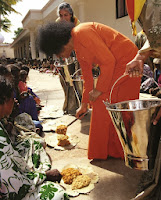.jpg)








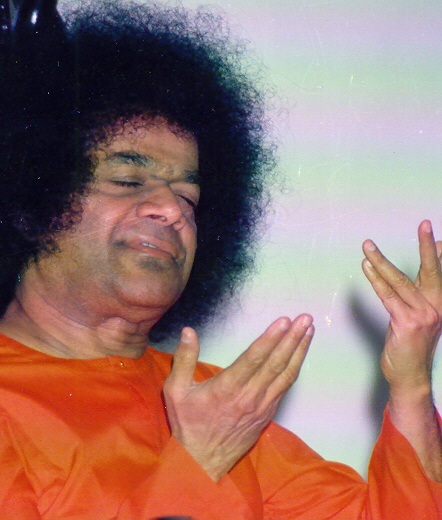
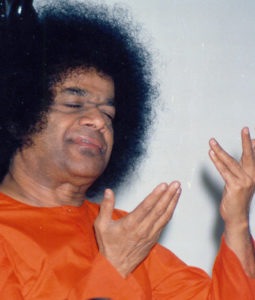
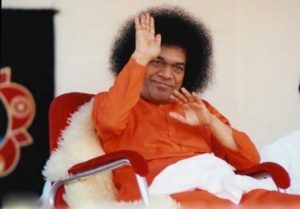
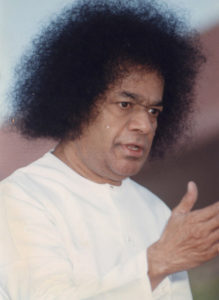
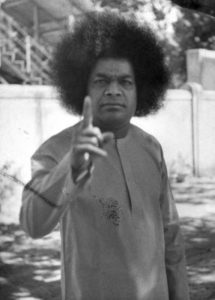
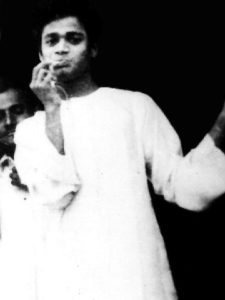
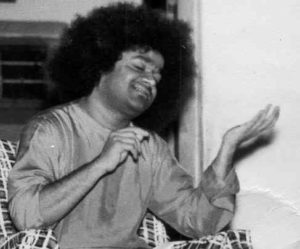
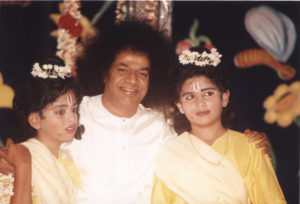
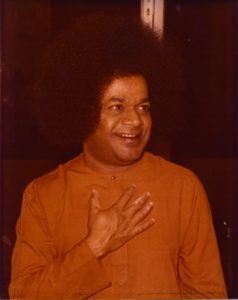
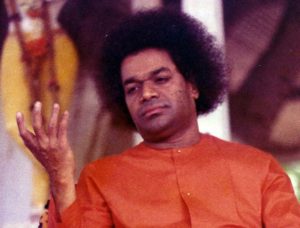










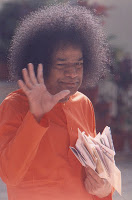








.jpg)



